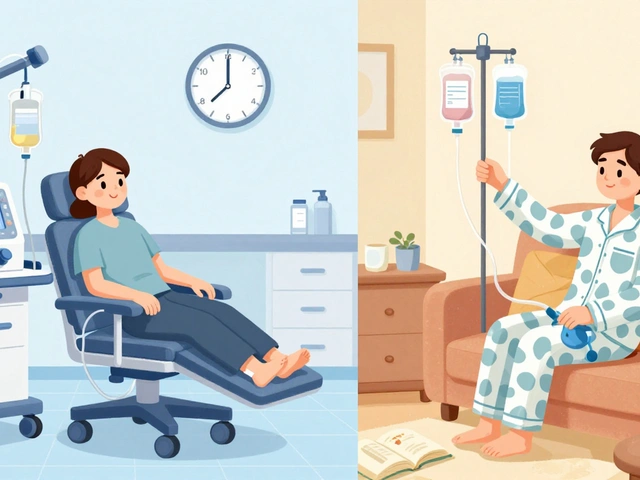Neurodevelopment: what to watch for and how meds fit in
Some medications change brain development risk—most famously valproic acid (Depakote). If you’re pregnant, planning pregnancy, or caring for a young child, you need clear, practical steps, not jargon. This page pulls together what matters: which drugs are often discussed for neurodevelopment effects, how to raise the topic with clinicians, and what simple checks you can do at home.
Quick medication checklist
If a medicine might affect brain development, act early and ask focused questions. Use this checklist during any appointment:
- Why is this medicine needed right now? Ask for the specific benefit and risks for you or your child.
- Is there a safer alternative during pregnancy or early childhood? For example, some neurologists consider alternatives to valproate for women of childbearing age—talk with both your neurologist and obstetrician.
- Can the dose be lowered or the timing changed to cut exposure? Some risks are dose-related.
- What monitoring do you recommend (blood tests, specialist visits, developmental screening)? Schedule those before a problem appears.
- Where can I read a clear patient guide? Check trusted pages like our Depakote guide for real-world details: Depakote: Uses, Side Effects, and What to Know.
Watch these early signs — and what to do
Early detection matters. Quick checks at home can flag delays so you can act fast:
- Social response: by 9–12 months a baby should smile and respond to voices; if they don’t, mention it to your pediatrician.
- Speech and sounds: no babbling by 9 months or no single words by 12–15 months warrants evaluation.
- Motor skills: not sitting by 9 months or poor coordination in toddlers should be checked.
- Behavior and attention: sudden or growing issues with focus, sleep, or extreme feeding changes deserve a review.
If you spot any of these signs, ask your pediatrician for a formal developmental screening and, if needed, a referral to a developmental pediatrician, neurologist, or early intervention program in your area.
Want more context on medications and brain health? Our page on Neurontin alternatives (Top Neurontin Alternatives in 2024) and other drug guides explain side effects, safer choices, and when to talk to a specialist. For questions about getting medications safely online, see our pharmacy safety guides like the Glyburide and online-pharmacy pieces linked from this tag.
Final practical tip: keep a simple medication log with dose, start date, and reason. Share that at every clinic visit. It makes specialist conversations faster and keeps everyone focused on protecting brain development while still treating the problem at hand.
This article explores the connection between spina bifida and learning disabilities. It discusses the basic facts about spina bifida, the impact it has on neurodevelopment, and the challenges faced by those affected. The article also provides useful tips for supporting individuals with both conditions.
View Details

